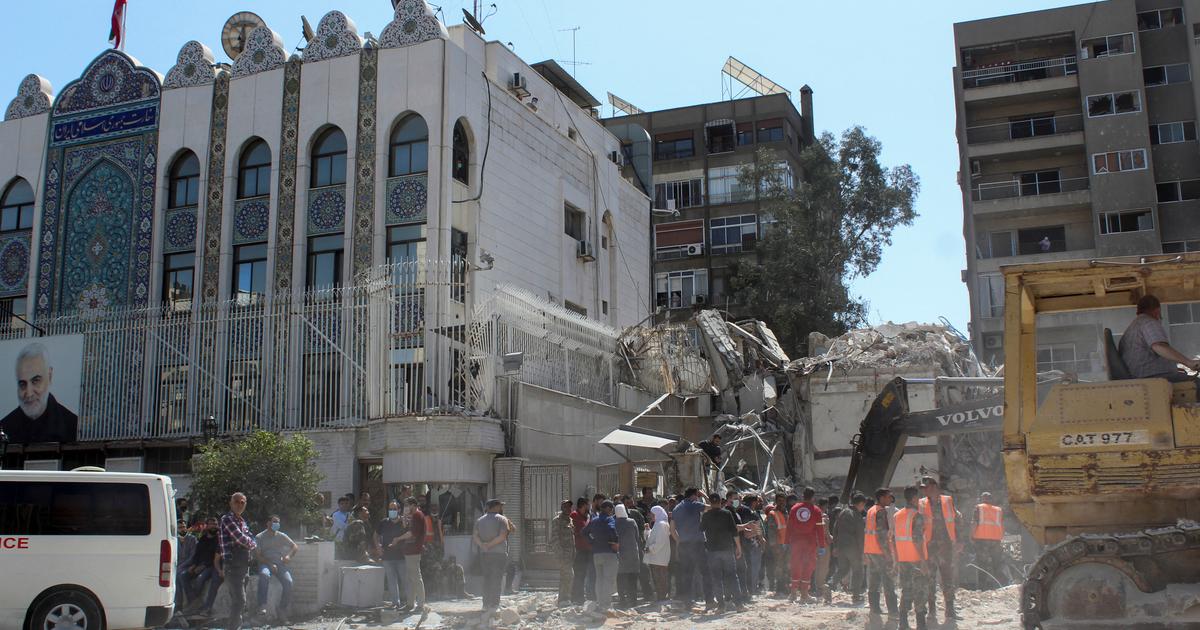Syria and disasters have become synonymous since the outbreak of the civil war about 12 years ago.
Massacres with chemical weapons, indiscriminate shelling of residential neighborhoods and millions of displaced people were the lot of the neighbor to the north throughout the previous decade.
Despite the calm that has occurred in recent years following the intervention of the regional powers and their deployment on the ground, large parts of the country remain unfit for human habitation and the economy is on the verge of collapse.
Therefore, the last thing the citizens of Syria needed was another disaster to befall them, this time in the form of a terrible earthquake that claimed the lives of more than 5,000 people.
Thousands of buildings that were left dilapidated by the damage of the conflict quickly collapsed due to the tremendous noise that hit neighboring Turkey and the aftershocks that have not stopped since then.
Hundreds of thousands of Syrians who were forced to flee their homes during the war have become destitute more and more, and the situation of those living in rebel-controlled territories is even more dire.
As always, there are those who know how to take advantage of tragedies for personal purposes and no one is better suited to this task than Syrian ruler Bashar Assad.
Assad, one of the cruelest dictators known to humanity in modern times, was a leper in the eyes of the international community and most of the Arab world for many years.
Syrian President Bashar Assad and his wife Asma visit a girl injured in the earthquake, hospital in Latakia, Syria, February 11, 2023 (Photo: Reuters)
Assad's survival and fate, which differs from that of the leaders of Arab countries in the "Arab Spring" era, is the result of boundless cruelty and the entry of Russia, Iran and Hezbollah into the arena and his remaining in power, however dependent he may be on his allies in Moscow and Tehran, has become a fait accompli.
This reality has led some of the countries in the region to break the boycott they imposed on the regime at the outbreak of the uprising in recent years.
Realizing that the regime would not fall, the Gulf countries replaced the diskette.
Instead of striving to replace Assad, they explored whether it would be possible to pull him back into the fold of the Arab world and break his alliance with Iran and Hezbollah.
This wish, the fulfillment of which Israel also wanted, has not yet come true, but the slow normalization with Damascus continued and received a renewed impetus following the earthquake.
As more and more bodies piled up, Assad profited from "earthquake diplomacy."
Leaders who had ignored him for years called to express their condolences for the heavy disaster, UN officials made a pilgrimage to his palace in Damascus to coordinate aid, and the foreign ministers of the United Arab Emirates and Jordan came for a solidarity visit. It was the first visit by a Jordanian foreign minister to Syria since the beginning of the war, in another crack In Assad's isolation wall.
Rescue of an injured girl from the ruins of a building following an earthquake in Azaz, Syria, February 6, 2023 (Photo: Reuters)
More in Walla!
Assad: The talks with Turkey should lead to the end of the occupation
An industry that generates billions: this is how the Assad regime became a government drug cartel
The smart test that detects an increased risk of having a stroke - now on sale
Even the Saudis, who previously led the military support for the rebels, sent a plane with 35 tons of food and medical and humanitarian aid to the airport in Aleppo, which has seen one of the most devastating battles throughout the war.
Many buildings damaged during the fighting quickly collapsed from the earthquakes, the first of which reached a magnitude of 7.8 - the strongest to hit the region in a century.
The Syrian opposition, divided among itself, relies almost entirely on the support of Turkey, whose forces are deployed in the northwest of the country.
In recent months, she has expressed concern about the reconciliation process between Ankara and Damascus, which may be accelerated due to the disaster shared by both neighbors.
"We are shocked and confused by the way the UN is behaving," said Rad Salah, head of the rescue organization "The White Helmets", which operates in rebel areas. Salah, whose organization is used to rescuing bodies from destroyed buildings, described the talks between representatives of the UN and Assad as "an achievement Free political" for the ruler of Syria.
After disappearing from the public eye in the first days after the earthquake, Assad plowed the country and arrived at the epicenters of the disaster alongside visiting the wounded in the hospitals together with his wife Asma.
Assad was entrenched in Damascus for most of the years of the war and this was an opportunity for him to demonstrate leadership.
Rarely, the current disaster was not his
direct responsibility.
"There is no doubt that this is a good moment for Assad," said Emil Hokaim, a Middle East expert at the International Institute for Strategic Studies in London.
"A tragedy for the Syrians is a blessing for Assad, because no one else wants to run this mess."
Syrian President Bashar Assad visits the disaster areas in Aleppo after the earthquake, February 11, 2023 (Photo: Reuters)
The Assad regime and its allies linked the Western sanctions with the country's lack of ability to deal with an earthquake of this magnitude, although they do not prevent the transfer of humanitarian and medical aid to Syria.
Although Assad was unable to lead to a significant change in American and European policy following the earthquake, a temporary humanitarian exemption granted by the Biden administration to facilitate the entry of shipments to Syria caused concern among Republicans and his opponents.
"This is a slap in the face of the Syrian people," attacked Michael McCaul, chairman of the Foreign Relations Committee in the House of Representatives, and Jim Rish, the senior Republican on the Senate Foreign Relations Committee. They warned that the exemption from sanctions on direct transactions with the regime for a period of six months is Too long, and will allow Assad and his associates to loot the aid funds. "The Syrian people need help carriers - we don't need to line the pockets of their oppressors."
Assad, who according to a report published this week on a Saudi channel is trying to restart his chemical weapons program, did not hide his need for Western funds.
The United Nations estimates that about nine million Syrians have been affected by the earthquake damage and has set a goal of providing aid of 400 million dollars to cover the immediate humanitarian needs in the next three months
. Since the earthquake. In his speech, Assad thanked the "Arab brothers and friends" who stood by Syria's side, and added that the earthquake is an "opportunity" to deal with the many problems in his country. He certainly did not mean its main problem - himself.
news
world news
the Middle East
Tags
Syria
Bashar Al Assad
Earthquake
Turkey








